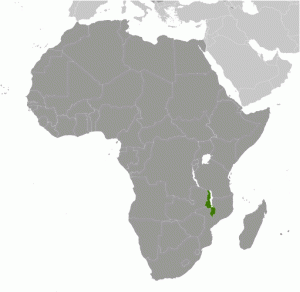COMMENTARY: Malawi court’s anti-gay ruling is full of nonsense
Court was biased, lawyers were incompetent and claimants were flawed.
Malawi’s High Court deployed breathtakingly twisted logic in its June 28 ruling that upheld the southern African nation’s anti-homosexuality laws, says activist journalism Rob Salerno.

Salerno, who is an editor for this news site, analyzes the Malawi court’s long-delayed explanation of its reasoning in the following entry from his LGBT Marriage News newsletter. (Click here to subscribe.)
MALAWI — The High Court released its (LONG) judgement in the case in which it upheld the country’s colonial-era “carnal knowledge against the order of nature” laws, and they are a breathtaking logic pretzel. I should acknowledge that if the Court’s summary of the case is correct, the two claimants had really, really shitty lawyers who made bad and incomplete arguments. (It should also be said that the two claimants are deeply flawed individual; one is accused of sexually assaulting minors in his employment, the other is a sex worker accused of robbing her clients).

But the Court seems to have cooked the ruling from the beginning, shutting down every challenge. On whether “sexual orientation” should be included in the constitution’s prohibition on discrimination based on “sex” or “any other status,” the court rules that if the drafters intended for it to be included, that it would have been included outright. Well then what is “any other status” supposed to mean, then? And they don’t even reckon with the idea that “sex” must include “sexual orientation” as other courts have ruled (a law that bans a man from having sex with a man, but doesn’t ban a woman from having sex with a man is obviously “sex” discrimination).
But the wildest part of the ruling is the court’s finding that laws that ban people from having gay sex don’t discriminate against gay people because they apply to gay people and street people. That’s an argument stupid on its face that Anatole France demolished it in 1894: “The law, in its majestic equality, forbids rich and poor alike to sleep under bridges, to beg in the streets, and to steal their bread.” Better lawyers might’ve articulated this argument more clearly – the Court says no evidence was presented to “prove” that the law banning gay sex targets gay people – but if this was the Court’s starting point, it’s unlikely they would have succeeded.




